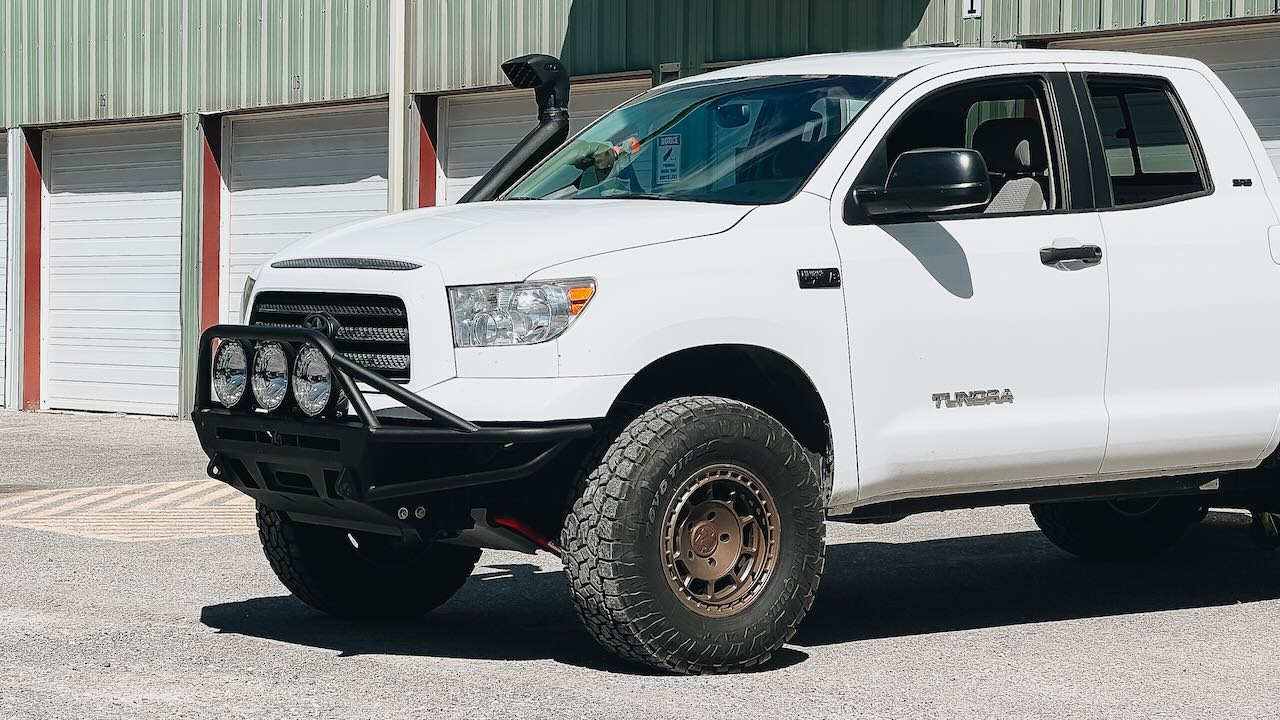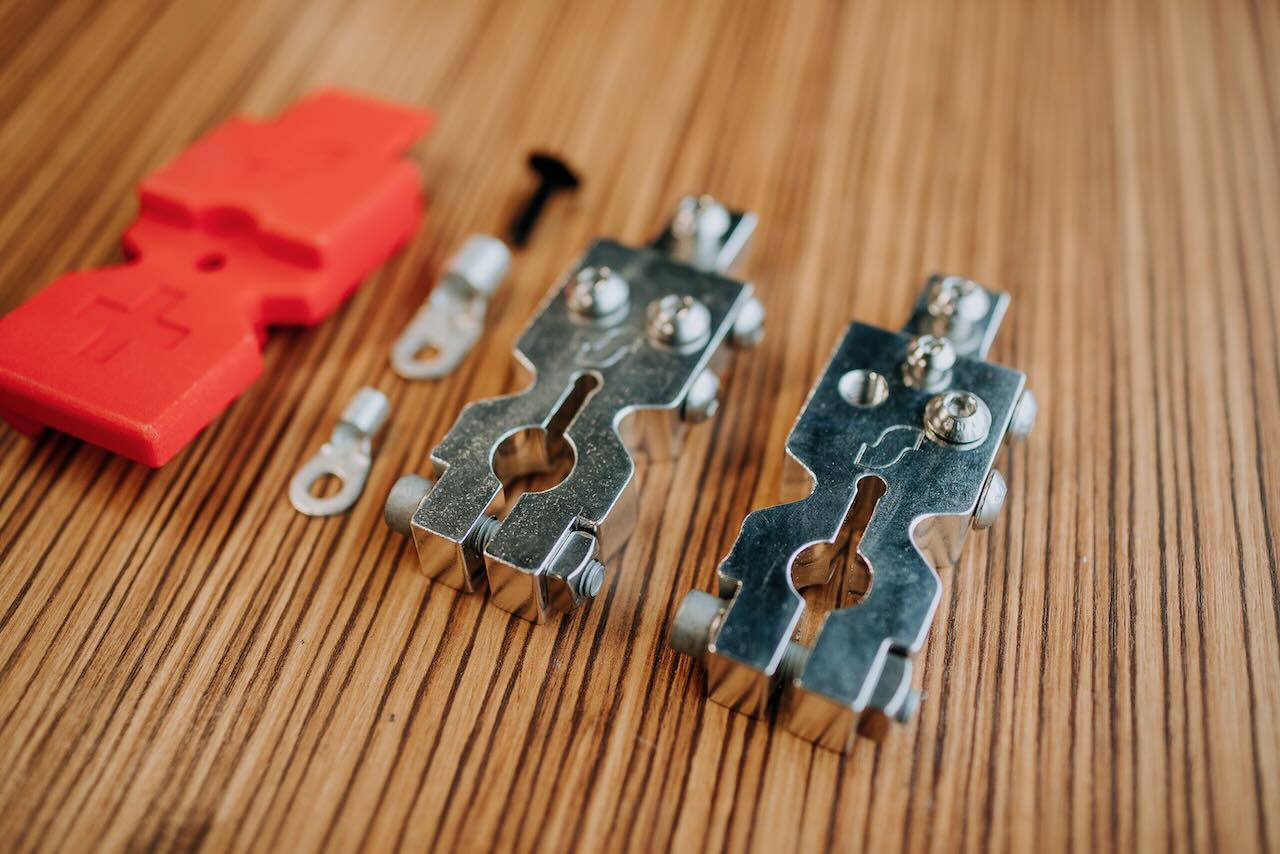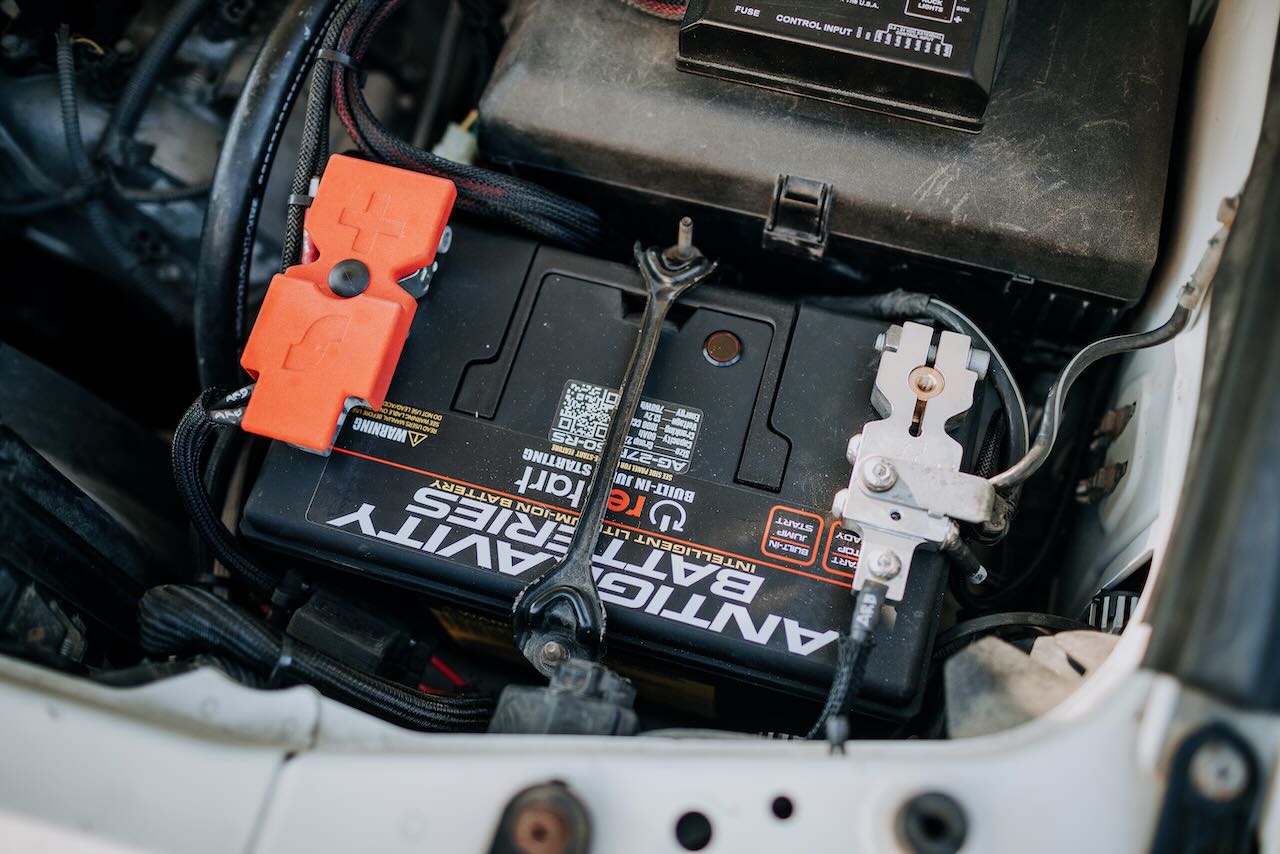When used as a daily driver, we never felt the need to add an aftermarket bumper to our 2008 Toyota Tundra. We used it on long, flat gravel roads for the last four years to get us to local campsites or hiking trailheads. The truck does have a set of CBI full-length steel skid plates to protect the soft underbelly, but after a few years of use, there were very few witness marks. Knowing how we drive, the trails this truck will see, and that we can always turn around if the road gets too rocky, we knew removing the steel skid plates in the name of weight savings made sense. To be honest, we struggled with the decision of adding any armor at all for the next stage of the build. The Tundra has a limited payload capacity, and armor is heavy.
The plan to run no armor changed after recently battling Saudi Arabian traffic in a rental car. When two lanes are used as four, and opposing traffic uses the gravel shoulder on the right at speed, things can get hairy quickly. Even minor accidents in a busy city or an animal strike can cause enough damage to require lengthy repairs. The protection of a properly designed bumper can reduce or eliminate the need to repair your vehicle if things go sideways.
In 2013 we drove our 1990 Toyota Pickup from Canada to Argentina. It had a flimsy stamped steel stock front bumper and no winch. We didn’t die, and we spent our money on the trip instead of parts for the truck. After our return to North America, we added both and appreciated the function provided. However, knowing they weren’t necessary on a long-term trip adds peace of mind with the decision to run a “light” bumper and no winch.
To limit the amount of weight added to the truck, I decided to start shaving weight from the truck first.
Toyota TRD Pro Tundra Skid Plate
The type of off-pavement travel we do with the Tundra generally limits the risk to the undercarriage of our truck, but the chance of a front impact is always relatively high. We decided to reduce weight by removing the full-length CBI Off-Road steel skid plates in exchange for a Toyota TRD Pro aluminum front skid plate.
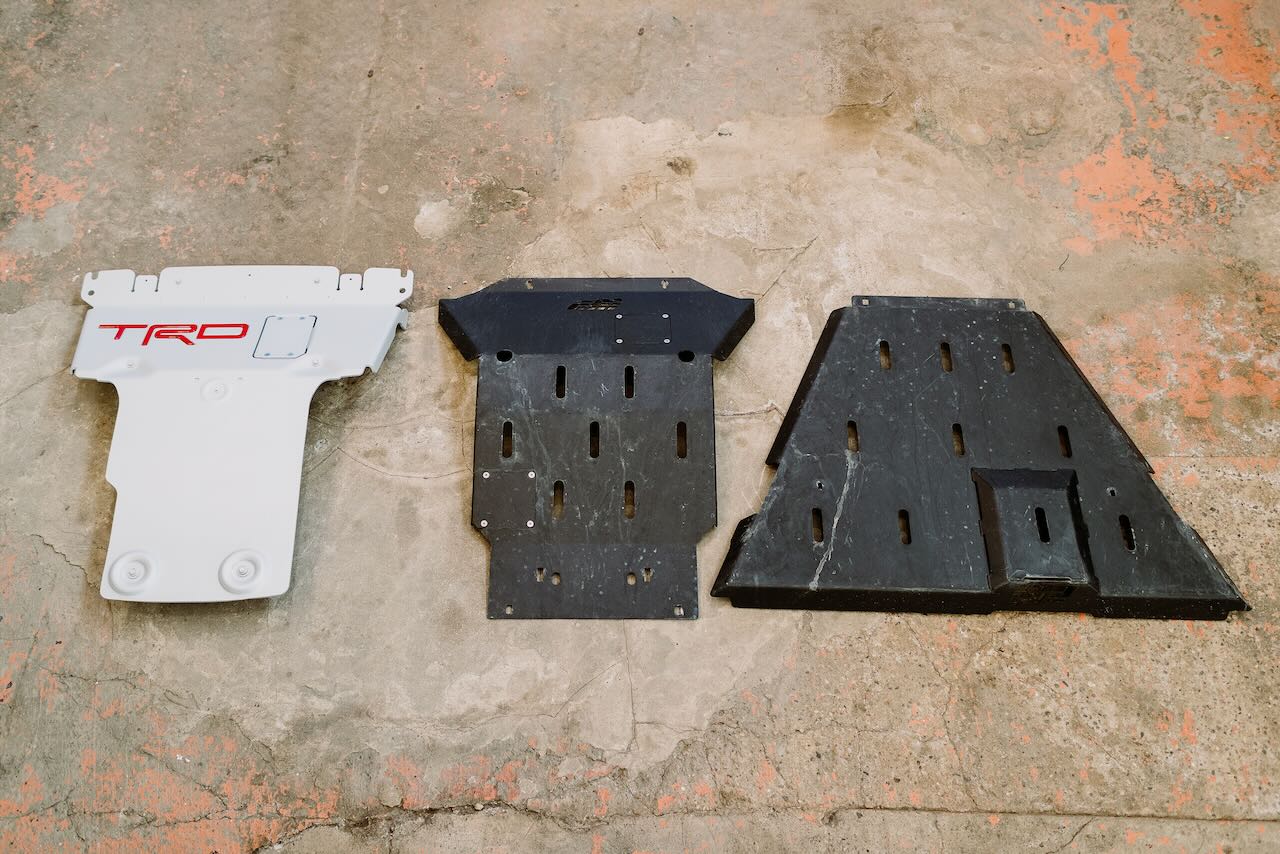
This TRD Pro part (PN PTR60-34190) doesn’t include a 2008 Toyota Tundra in the application list, but since the 2007 to 2021 Tundras are so similar, I took a shot and ordered one. As expected, it bolted on perfectly.
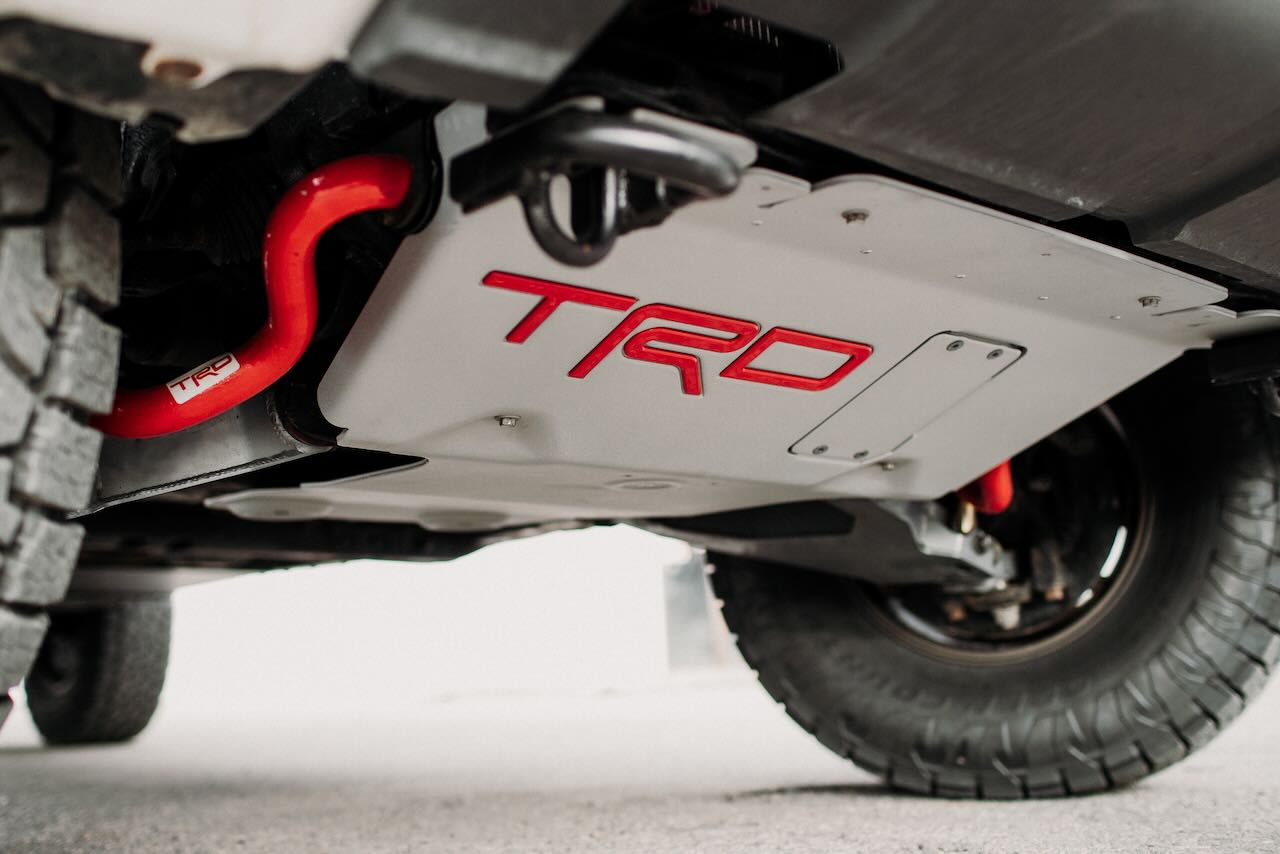
CBI Off-Road Fabrication Skid Plates (Steel): 175 pounds
Toyota TRD Pro Skid Plate (Aluminum): 27.2 pounds
Weight savings = 147.8 pounds
Weight added compared to stock: About 20 pounds
Rear Seat Removal
By removing 60% of the rear seat, we saved an additional 51 pounds. After some deliberation, we decided to take out the remaining 40% as well. This reduced the weight by another 35 pounds. Using the backseat as storage makes sense since we don’t need room for additional passengers and allows us to store gear in the truck, keeping weight relatively forward and low.
Weight savings: 86 pounds
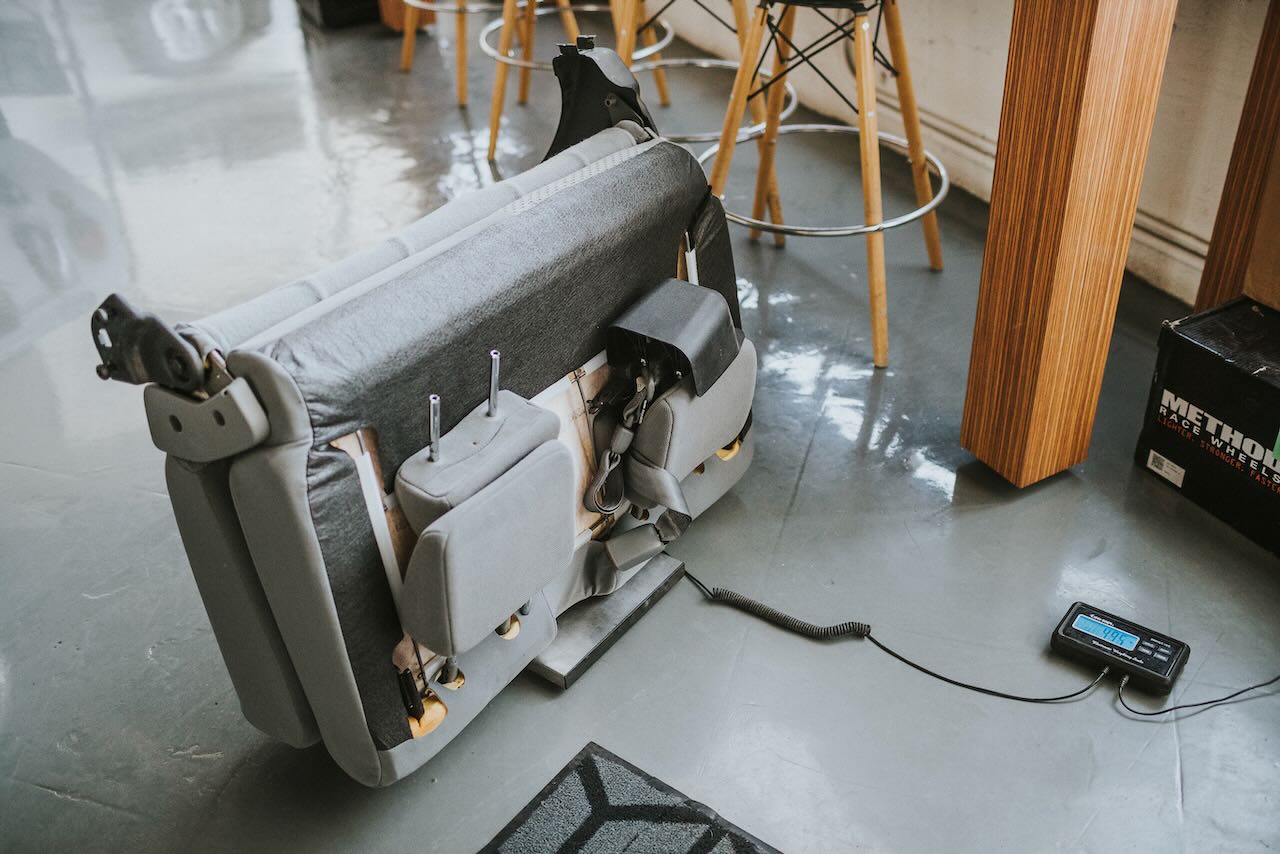
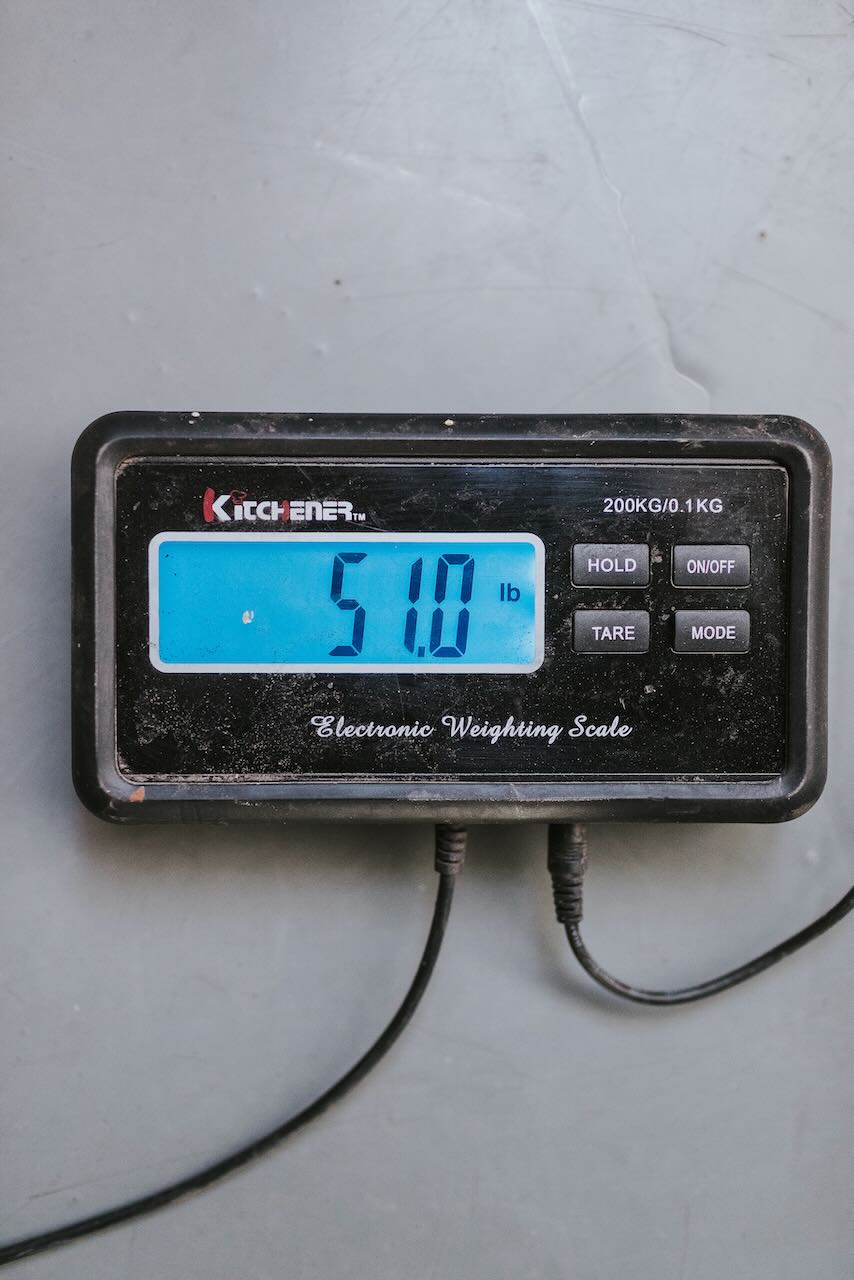
Antigravity Lithium Battery Installation
Located in Los Angeles, California, Antigravity Batteries builds batteries for RVs, motorcycles, cars, and boats. Their battery management system (BMS) includes built-in wireless jumpstarting with the RE-START technology. If the battery is discharged too low, the BMS will shut off the battery until the RE-START button is pressed. The battery comes with both a wireless key fob and a button on the battery itself.
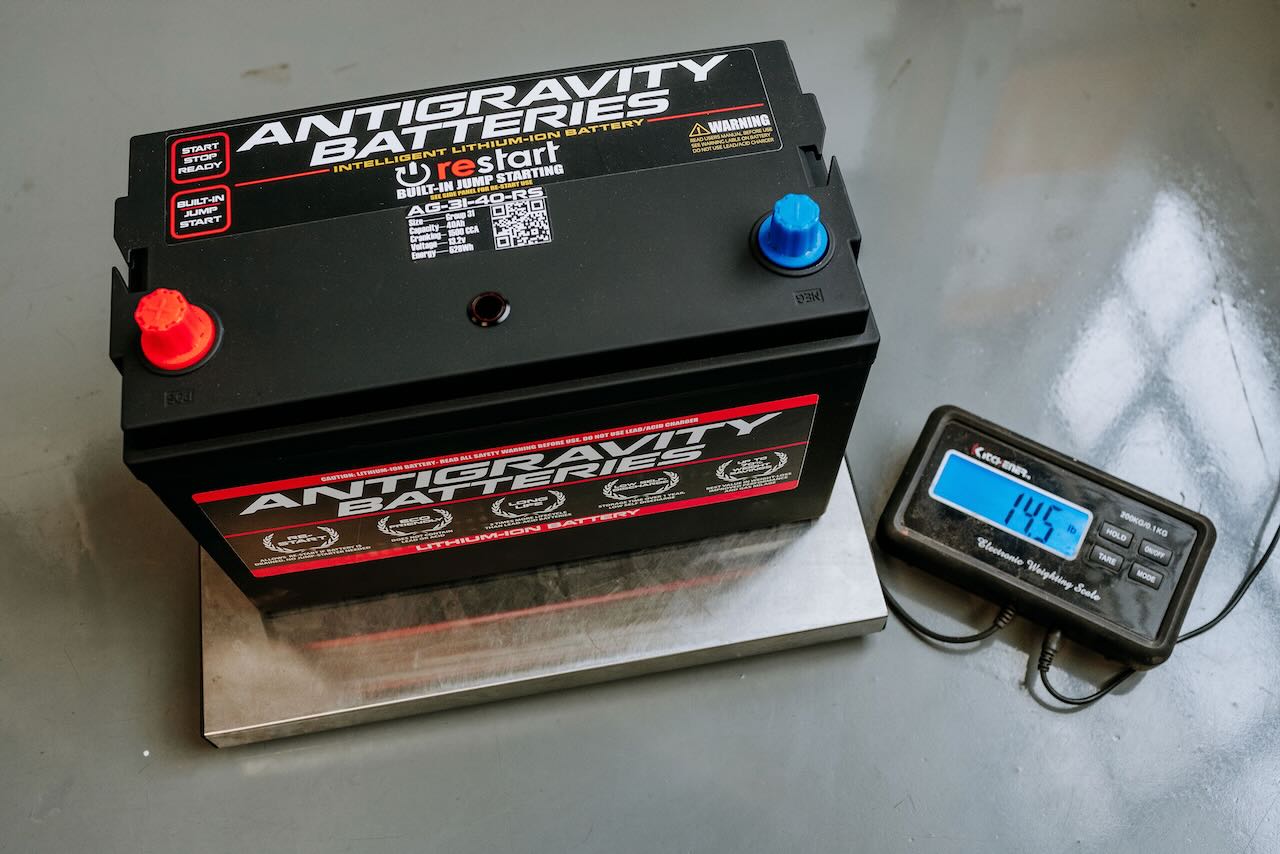
The benefit of this lithium battery is the significant weight savings. It weighs 55 pounds less than a Group 27 AGM battery. 55 pounds! Unfortunately, there are two downsides to lithium starting batteries. The first is that most (including Antigravity Batteries) cannot be used to power a winch since it’s not rated for the large amp draw. The second is that lithium batteries normally don’t play well with cold weather.
I used a pair of billet Slee Off-Road battery terminals to keep the wiring nice and tidy. Fancy.
Antigravity recommends using this battery above -5˚C (20˚F), but its self-heating design (when discharged) means it can occasionally be used below this temperature. In order to add a bit of safety, I installed an Expion360 100Ah battery jacket kit with a heater. I wired this heater to the starting battery via the sPOD Bantam X. The theory is that the battery will power the external heater while also heating internally since it’s being discharged. This “occasional” use turned into “immediately and often” when we ran into an early cold snap in Alberta. After a couple of weeks of use below -15˚C (5˚F) and a few nights below -20˚C (-4˚F), this has proved to work quite well in protecting the lithium battery in cold temperatures. On average, the battery heater draws one amp per hour, so running it overnight is not an issue.
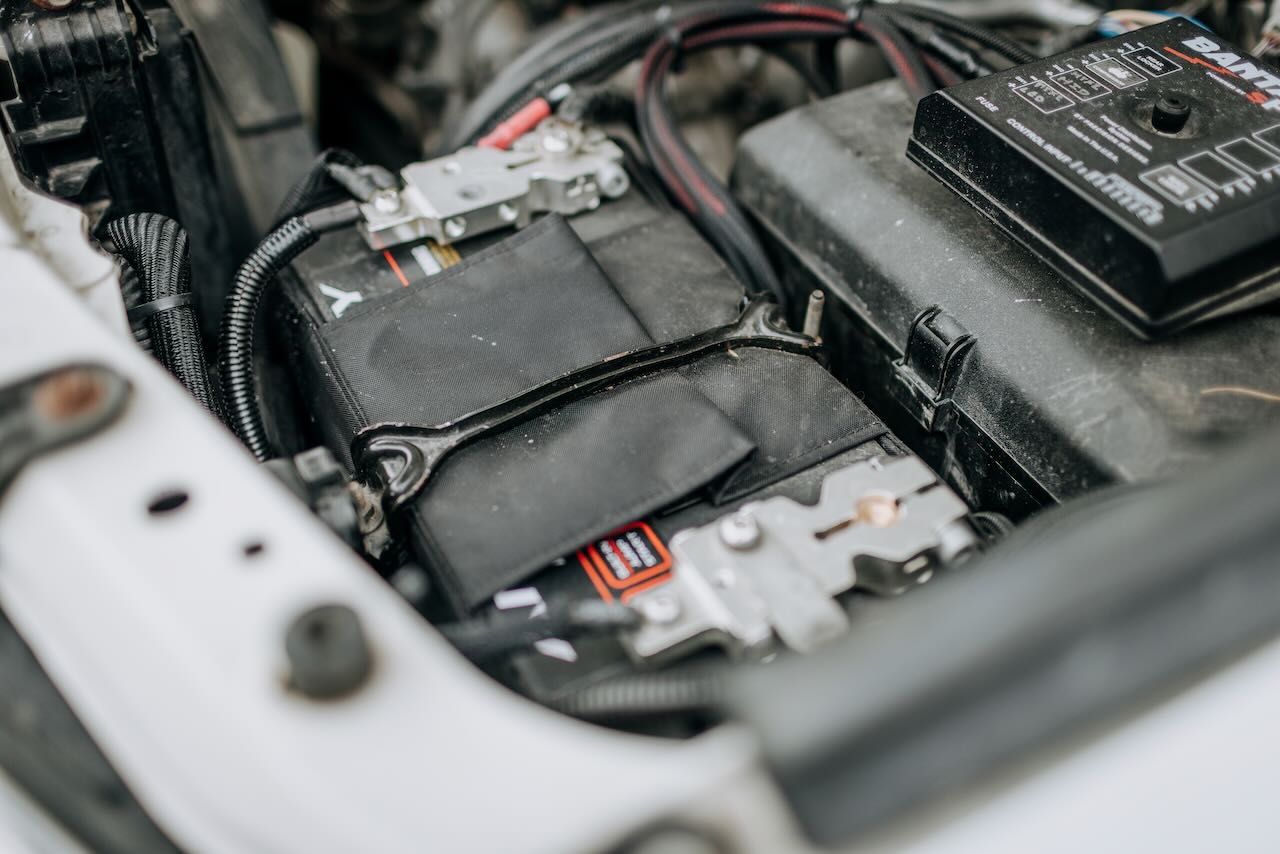
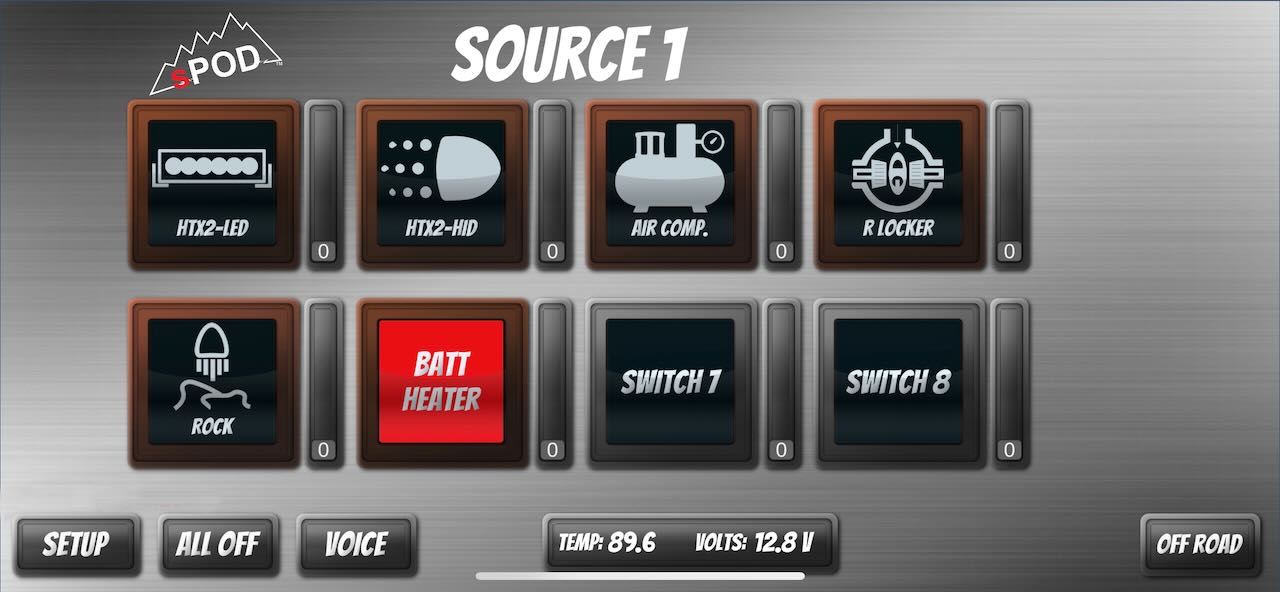
Since most lithium batteries can’t withstand the high amp draw from winches, we had to really look hard at whether we needed a winch. Our choice to limit weight by omitting a winch kept 75 pounds off the front of the truck. For now, our Warn VR 12-S will stay on the shelf in our storage locker.
Weight savings: 55 pounds
C4 Fabrication 2007-2013 Hybrid Front Bumper
Selecting a bumper for the Tundra started with a spreadsheet of available aftermarket options that included variables such as weight, lead time, and price. We considered custom bumpers and aluminum construction, but in the end, we felt that the steel C4 Fabrication Hybrid Bumper for 2007-2013 Tundras fit our requirements best.
We selected the hybrid bumper with a large 1 3/4 inch 0.120 HREW tubing hoop in order to mount three large lights and provide radiator protection. We’re not installing our Warn winch at this point, but the bumper has a winch mounting plate if we ever change our minds. We have found Warn dealers in every corner of the world that we’ve traveled. C4 Fabrication bumpers are shipped in bare steel, so I took the opportunity to drill a center hole for a third Lightforce HTX2 light. After a week at Calgary Powdercoating, the bumper was protected in black santex and ready for installation.
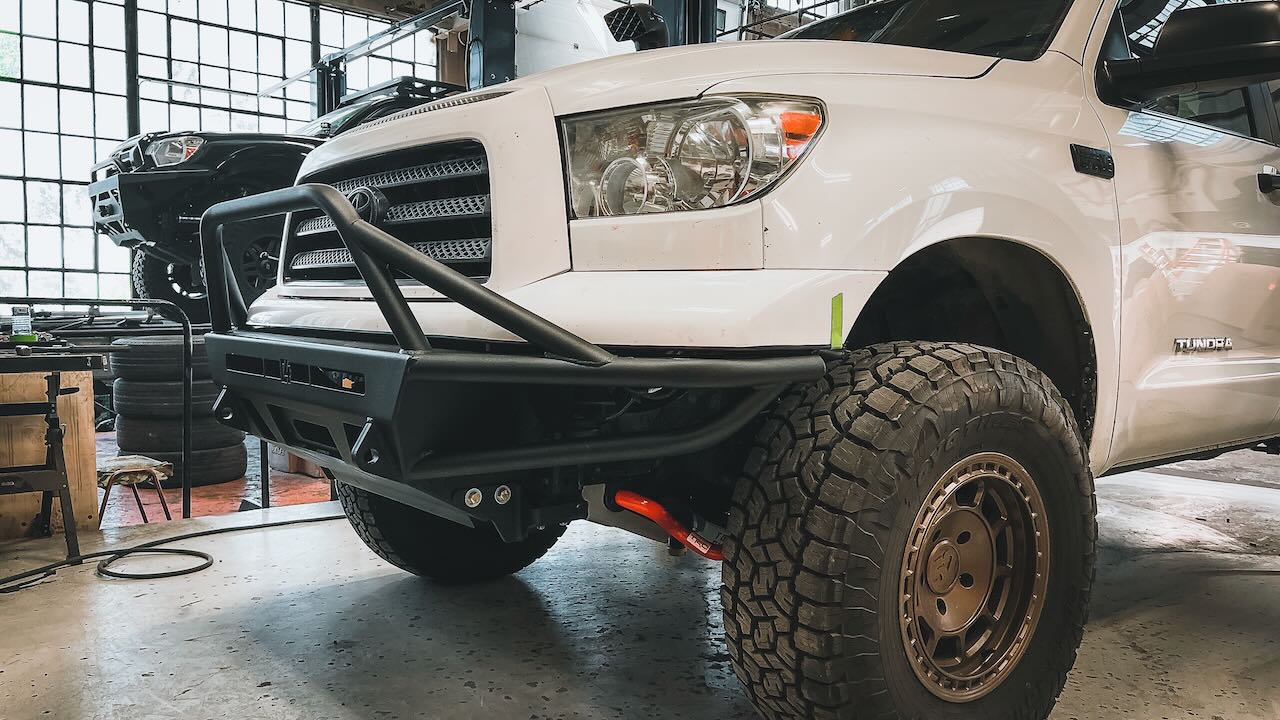
The bumper requires a significant amount of trimming of the factory plastic bumper to install and increases the approach angle nicely. The rest of the installation was a simple bolt-in affair and transformed the look of the truck.
Weight added: 170 pounds
Conclusion
In the end, we added a significant amount of front-end protection and only gained 49 pounds compared to a stock Tundra. It wasn’t necessarily simple, and we had to give up some things to make it happen, but when you’re working with a vehicle with a limited payload, compromises become the norm rather than the exception.
C4 Fabrication | c4fabrication.com
Antigravity Batteries | antigravitybatteries.com
Warn Industries | warn.com
Toyota Canada | toyotacanada.com


